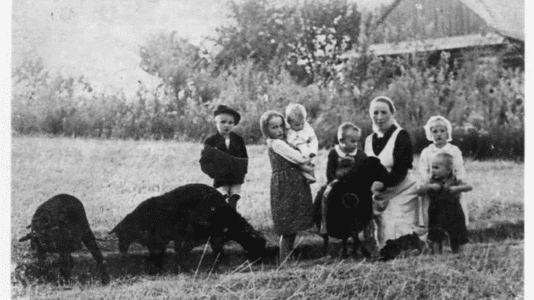During the weekend’s Law and Justice party (PiS) electoral convention, party leader Jarosław Kaczyński delivered a speech that served as a political analysis of contemporary Poland and its place in Europe.
Kaczyński’s speech in the town of Końskie over the weekend could have been tentatively titled: “The Polish state in the era of Western crisis.” The PiS leader outlined modern threats such as extreme individualism, social Darwinism (a world for the young while sidelining the elderly), and attacks on the family as well as attacks on the nation.
A particular danger aimed at Poles, in Kaczyński’s opinion, is “national micromania,” an attitude that rejects national aspirations, shaped by a mechanism he calls the “pedagogy of shame.”
Kaczyński outlined the pillars of a strong and efficient state as the best response to contemporary challenges. A country must be independent and sovereign, not in a position of dependency on its neighbors, but also modern and capable of quickly supporting developmental trends. Here, he mentioned artificial intelligence and utilizing the potential of mathematically gifted youth. However, the digitization of the country should not deprive Poles of being able to make payments in cash, which, according to the politician, ensures a certain level of consumer and citizen independence.
To make Poland strong and efficient, it must be based on pillars built on the prosperity of its residents. Kaczyński cited data that the number of children at risk of poverty had dropped from 30 percent to 4 percent during his coalition’s tenure. Work has become more productive, and institutions have been strengthened to allocate resources for development, for example, the state bank BGK.
All these pillars are tied together by a common foundation: solidarity, derived from the Solidarity movement of 1980. The vision is for Poland’s well-being and freedom to grow based on this ideology, supported by a robust and modern state.
“This must also include a grand security policy to protect against the worst: war,” Kaczyński said.
The contemporary vision for Poland also has an identity dimension. Kaczyński defined the dignity aspirations of Poles that his party intends to realize.
“We want a Poland that can say: Our enemies tried to destroy us and utterly failed,” he stated.
Poles, as a nation constantly fighting for existence, statehood, and material security for their families, are now expected to reach for more. Fulfilling basic needs should allow for thinking in terms of larger community values.
Poland, without the constant struggle for existence and basic survival, would be in a situation unfamiliar to its people for 10 generations.
Who knows, maybe we’ll find out what it’s like to live in a country that has no reason to fear for its sovereignty?






